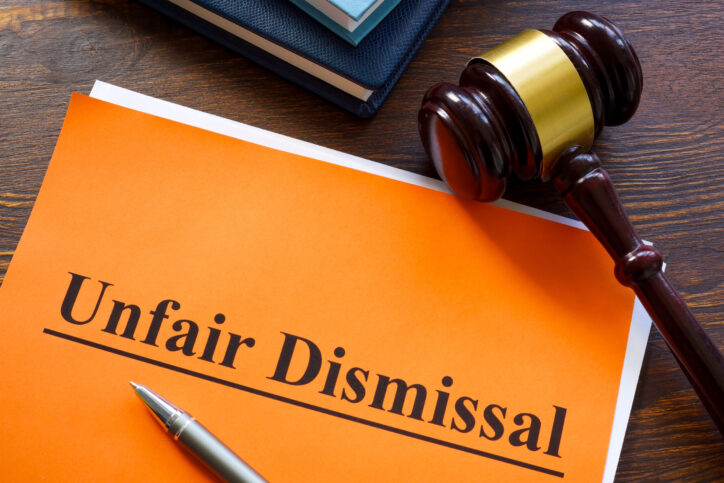Whether you’re creating a contract or signing one, it’s essential to put the time and effort into understanding and managing all aspects of the contract and the relationship it will create.
“A lot of people assume, rather than read contracts – which is quite dangerous,” says Damien Bristol of Rowe Bristol Lawyers.
“You need a firm understanding of both your obligations and the other party’s obligations to avoid any nasty surprises down the track.”
Does it reflect your intent?
It’s important to take plenty of time to read through contractual details to ensure they align with:
- any prior terms that have been verbally negotiated and
- your understanding of how the contract should work.
“When you think you understand one thing and somebody else thinks they understand something else to be the case, it gets a bit hard to prove that you’ve got a binding agreement,” says Bristol.
“A lot of contractual litigation boils down to an argument over what the contract says and what people say it means or should mean.”
“You’re better off having that discussion and ironing out any misunderstandings before you sign on the dotted line, rather than when you’re a long way down the track.”
It can be highly valuable for both parties to discuss the key components of the deal, such as definitions of terms, description of goods/services, key deliverables and milestones, payment details, provisions for damages, penalties, dispute resolution processes and termination conditions.
Payment obligations
Whether you’re working with suppliers or clients, it’s important to understand the key deliverables for each milestone, the size of each payment and when payments must be made. This is particularly important in the first months and years of your business, when you’re most vulnerable to cash flow issues.
“It’s during that time that you have less of a feel for the people you’re dealing with – so you need to be particularly aware of your contractual entitlements and obligations,” says Bristol.
Background check
It’s important to do as much as you can to identify whether the other party has the capacity to comply with their obligations, including in the event they default.
t’s also worth looking to find out if there is a third party, such as a guarantor, who can underwrite the other party’s obligations under the agreement.
Manage the contract
Monitoring execution of contractual obligations from the start of the contract is very important to enable you to identify when there’s an issue with the other party’s performance or ability to perform.
“If things are all over the place and lackadaisical from the start, then performance becomes harder to track and it will take longer to recognise there might be something you need to address,” says Bristol.
“You might be a long way down the track in terms of exposure before you realise you should take some action or pull the pin.”
Monitoring compliance is also important because sometimes the consistent actions of either party that are not strictly compliant with the terms of the contract can be recognised by a court as being a binding variation of the contract.
“If, say, the contract says you have to be paid weekly, but you have always accepted payments every six months, then the court might decide that’s what you agreed to do,” Bristol says.
Variations
Additional requirements or modification of existing agreements can impact budgets and timelines for both parties.
Variations need to be discussed, negotiated and agreed to before being put into effect so both parties know what they’re committing to in regards to specifications, deliverables, cost and timelines.
Variations should be written and signed by both parties. “You don’t want to end up with a nasty surprise later where somebody says, ‘I didn’t agree to that variation’, or, ‘I didn’t agree to pay for it’, or, ‘I didn’t agree to pay that much for it’,” says Bristol.
Dispute resolution
Depending on the size and the nature of the contract, it can be beneficial to have a dispute resolution process worked into it – especially in industries like construction – to hopefully enable parties to resolve issues that arise without the cost and delay of litigation.
There’s a benefit in considering, at least, a dispute resolution process, like a mandated mediation process, or arbitration agreement. There is a benefit for both parties if there’s a way of possibly avoiding drawn out and costly legal fees.
Bristol warns there can be a downside to having a formalised dispute resolution process: “It can create the potential for one party to delay – to put people through that process and waste time – before inevitably having to go to court anyway.”
And he says there are other arrangements, such as sale agreements, where there might not be quite as much benefit in having a dispute resolution process.
Ending the relationship
It’s important to understand the circumstances in which either party is allowed to pull out of a contract. For example, is it a fixed term contract and you’re stuck with it until the term expires? Or if you don’t actively opt out, will the contract roll over into another term?
DIY contracts
Extreme caution is advised for people who create or negotiate their own agreements or try to adapt existing contracts.
While many business owners know a lot about their businesses and are capable of structuring their own draft agreement, there’s a lot of risk involved in using it as the final legal document.
“You don’t know what you don’t know, until it’s too late,” says Bristol.
“All sorts of other things can go wrong. The main concern is that people assume they know what the other party’s intentions are and don’t find out they’re wrong until it’s too late.
“Even just having a set of independent eyes, run over the agreement can identify things in your agreement that haven’t been addressed – that should be.
“If you wouldn’t be willing to live with the consequences of something going wrong with the contract, you should be balancing those potential consequences against the cost of having a professional review that contract and give you some peace of mind as to where your risks lie.”






